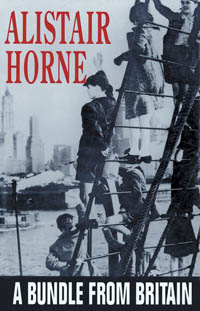
Why, it may well be asked, should I, as a Brit, feel entitled to write about an all-American exploit in World War II? If I may explain: I was a “Bundle from Britain” schoolboy in Millbrook, New York, age 16, when Pearl Harbor was struck. (I later wrote a book about the experience.) I can recall as vividly as yesterday the anger, gloom, and sheer bewilderment that met news of the attack. I also remember the ensuing slump in morale in America as the new Allies experienced defeat after defeat—Hong Kong, Manila, Singapore—and finally the humiliating fall of Bataan.
See MHQ’s story
on Doolittle’s Raid
Payback for Pearl
But, this being America, there was always hope. That hope was rekindled when, on April 18, a small force of bombers under Lieutenant Colonel Jimmy Doolittle struck back at the very heart of Japan. I still regard it as one of the most courageous, self-sacrificing, and inspiring feats of arms undertaken by any Allied outfit in World War II. Shortly before Jimmy Doolittle’s death in 1993 at age 96, I met and sat next to him at a luncheon in his home state of California. He was rather deaf but most friendly, and modest. It was an honor that left me almost speechless. Questioning him about his later career in World War II, I babbled on and asked what must have been asked a thousand times before: “Wasn’t it all rather an anticlimax?” “Well, you might say, kind of boring,” is how I recall his response. For some men, perhaps, but consider this: He ended the war commanding the entire U.S. Eighth Air Force in Europe.





